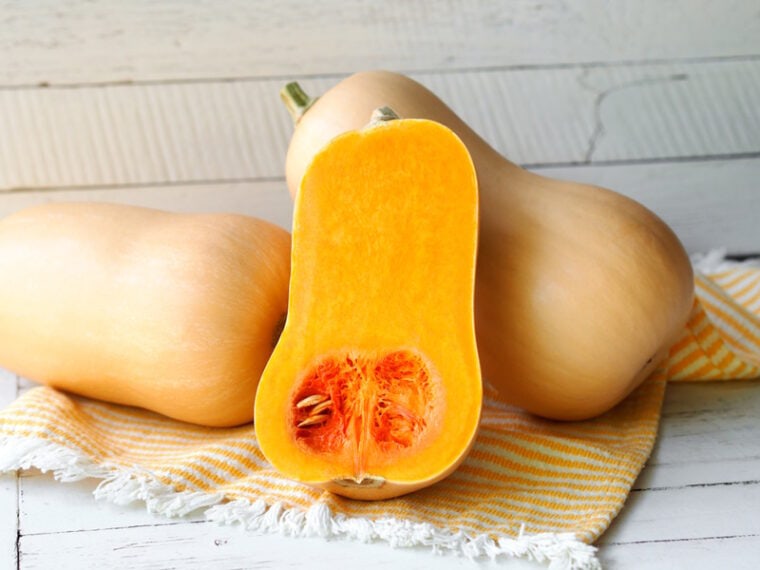
Click to Skip Ahead
Dog owners, rejoice! The answer to the question “Can dogs eat butternut squash?” is a resounding yes. This vibrant, orange-fleshed squash is not only safe for dogs to eat, but it also packs a nutritional punch that can benefit your furry friend’s health. However, serving it correctly and in moderation is key to ensure it’s a healthy addition to your dog’s diet.
Nutritional Benefits of Butternut Squash for Dogs
Rich in Fiber
Butternut squash is a fantastic source of dietary fiber, which plays a crucial role in your dog’s diet. Fiber aids in digestion by adding bulk to the stool, helping to regulate bowel movements. This can be particularly beneficial for dogs suffering from digestive issues like constipation or diarrhea. Moreover, fiber can help manage your dog’s weight as it provides bulk and can prevent overeating.
Packed with Vitamins
This winter squash variety is a veritable powerhouse of essential vitamins that contribute to your dog’s overall health. It’s packed with vitamin A, which is vital for maintaining good eye health and boosting immunity. Vitamin C, also abundant in butternut squash, is known for its immune-boosting properties, which may help your dog fight off illnesses. Additionally, vitamin E, another key vitamin found in butternut squash, helps maintain a healthy skin and coat, reducing dryness and itchiness.
Mineral-Rich
Butternut squash is more than just a vitamin-packed vegetable; it’s also rich in crucial minerals like potassium and magnesium. Potassium supports heart health by helping to maintain a regular heartbeat and balancing fluids in your dog’s body. Magnesium, on the other hand, aids in nerve and muscle function, contributing to your dog’s overall mobility and agility.
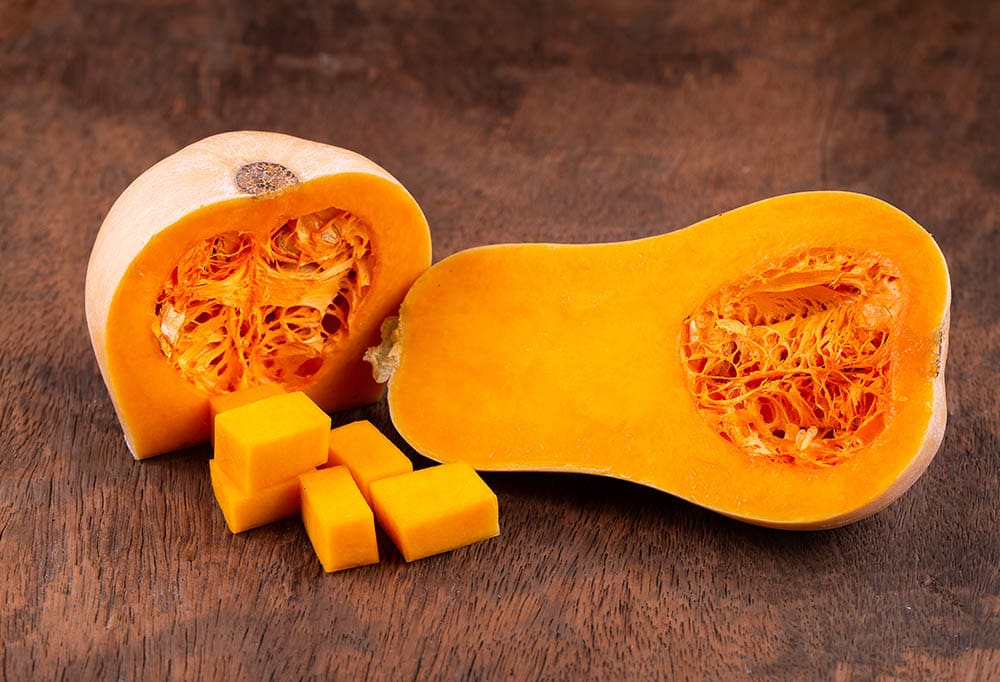
Serving Butternut Squash to Dogs
Cooking Methods
While butternut squash is indeed safe for dogs, serving it raw can be tough for them to digest. Therefore, it’s best served cooked. Steaming or roasting are ideal methods as they do not require added fats or oils and preserve most of the nutrients. Avoid adding seasonings or spices, as some can be harmful to dogs.
To Peel or Not to Peel
The skin of the butternut squash, while not toxic, is tough and can be difficult for dogs to chew and digest. To prevent any potential digestive issues, it’s best to peel the squash before cooking and serving it to your dog.
Portion Size
Even though butternut squash is a healthy food option for dogs, it should still be served in moderation. Too much can lead to digestive upset due to its high fiber content. Start with small portions and adjust based on your dog’s size, age, and activity level.
Potential Risks of Butternut Squash
Choking Hazard
The seeds and skin of butternut squash can pose a choking hazard to dogs, particularly smaller breeds. Always remove these parts before serving to ensure your pet’s safety. Make sure to also cut the squash into bite-sized pieces for your dog.
Allergic Reactions
While rare, some dogs might be allergic to butternut squash. Signs of an allergy can include itching, swelling, and digestive upset such as vomiting or diarrhea. If you notice any of these signs after feeding your dog butternut squash, consult a vet immediately.
Alternatives to Butternut Squash
Pumpkin
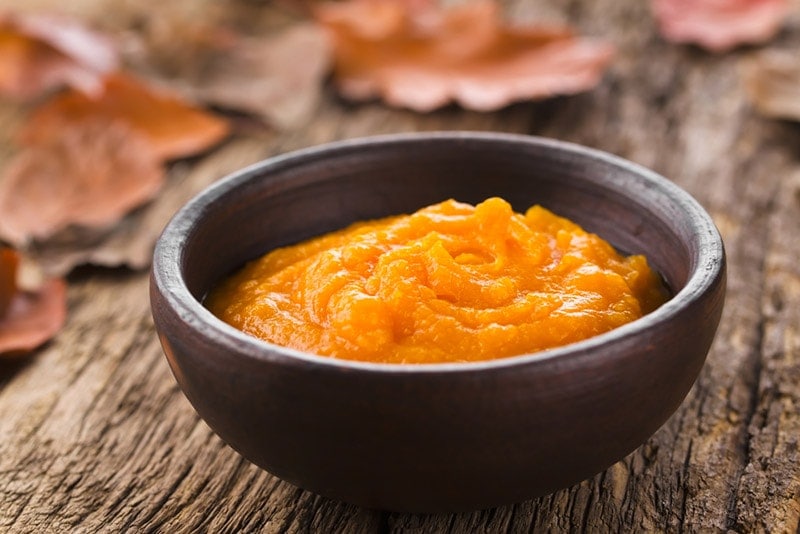
Pumpkin is another dog-friendly squash that’s high in fiber and vitamins. It’s particularly beneficial for dogs with digestive issues and can be easily incorporated into their diet.
Sweet Potato
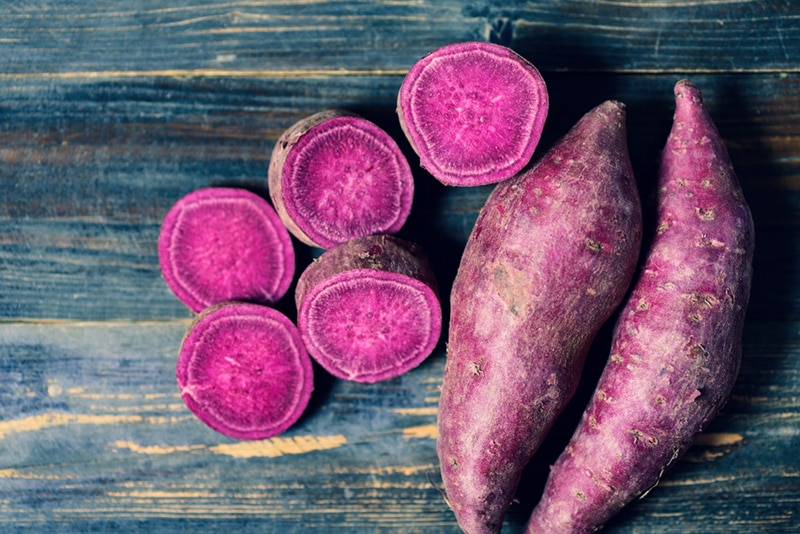
Sweet potatoes are a good source of dietary fiber, vitamins, and minerals, just like butternut squash. They’re also high in beta-carotene, which supports eye health.
Carrots
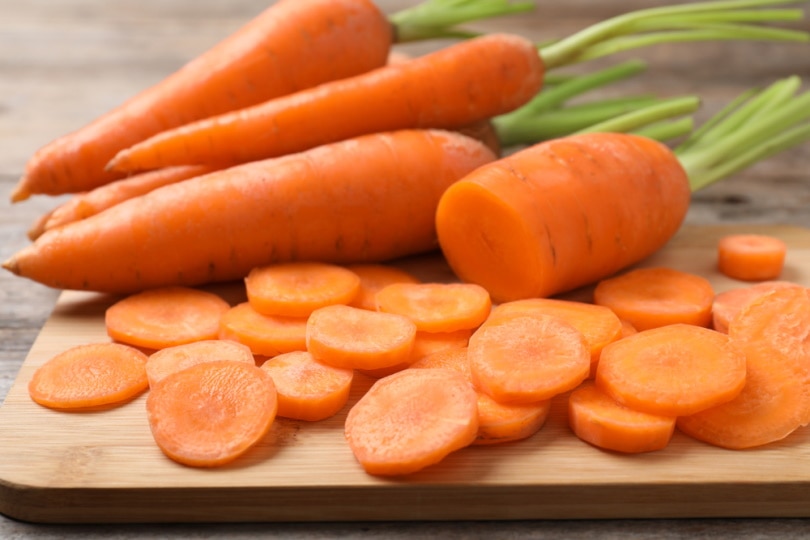
Carrots are a low-calorie alternative that are high in fiber and vitamin A. They make for a crunchy treat that’s great for dogs’ oral health, particularly those with weight issues.
Tips for Including Squash in a Healthy Dog Diet
Incorporating squash into your dog’s diet can offer numerous health benefits, thanks to its rich content of essential vitamins, minerals, and dietary fiber. Here are some handy tips on how to introduce this nutritious vegetable into your furry friend’s meals in a safe and healthy manner.
Choose the Right Type of Squash
There’s a variety of squashes that are perfectly safe for dogs, including butternut squash, zucchini, and pumpkin. All these types are loaded with critical vitamins and minerals that contribute significantly to your dog’s overall health.
Use Squash as a Fiber Supplement
If your dog tends to get hungry often, adding fiber to their diet from healthy sources like squash can help satiate them for longer. This can be particularly beneficial for overweight dogs trying to lose weight.
Include Squash in Treats
Many dog treats include squash as an ingredient, offering a tasty and healthy way to incorporate this vegetable into your pet’s diet.
Always remember, every dog is unique. What works for one might not work for another. Therefore, it’s always best to consult with your vet before introducing new foods into your pet’s diet.
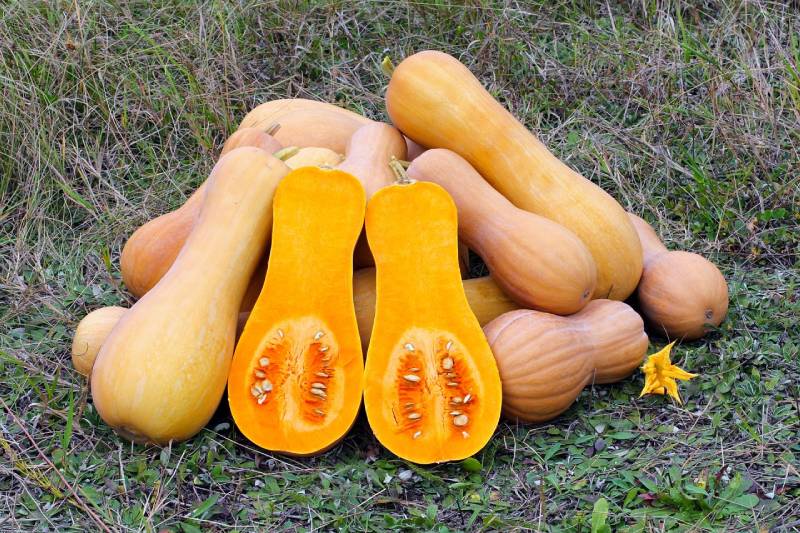
Other FAQ About Butternut Squash for Dogs
Q: Can puppies eat butternut squash?
A: Yes, but it should be cooked, mashed, and served in small amounts.
Q: How often can my dog eat butternut squash?
A: Butternut squash can be included in your dog’s diet a few times a week, but it shouldn’t replace their regular dog food.
Q: Is butternut squash good for overweight dogs?
A: Yes, its high fiber content can help promote feelings of fullness and aid in weight management.
Q: Can dogs with diabetes eat butternut squash?
A: Yes, but in moderation due to its natural sugar content. Speak with your vet to confirm it is an appropriate choice for your dog.
Q: Can butternut squash help a dog with constipation?
A: Yes, the high fiber content in butternut squash can help regulate bowel movements. Again, confirm with your vet prior to feeding to your dog.
Q: How much butternut squash can I give my dog?
A: This will depend on your dog’s size and dietary needs. Always start with small amounts and adjust based on your dog’s reaction.
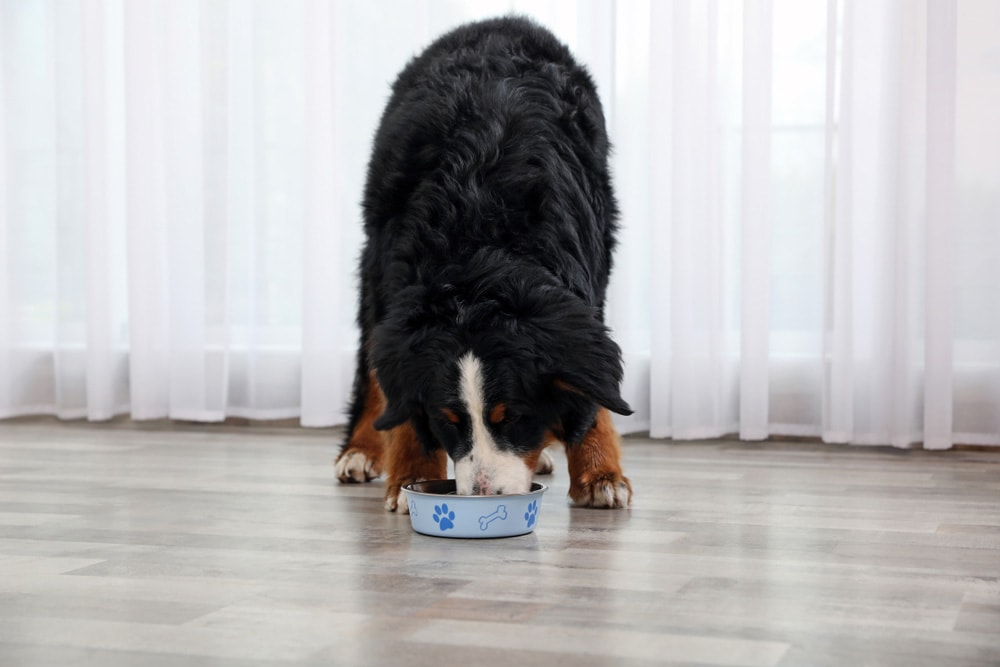
Conclusion
Butternut squash can be a healthy and tasty addition to your dog’s diet, offering a range of nutritional benefits. As with any new food, introduce it slowly and watch for any signs of allergic reactions. Variety is the spice of life, even for our four-legged friends, so don’t be afraid to get creative with their meals while keeping their nutritional needs in mind.
Featured Image Credit: pada smith stockphoto, Shutterstock









